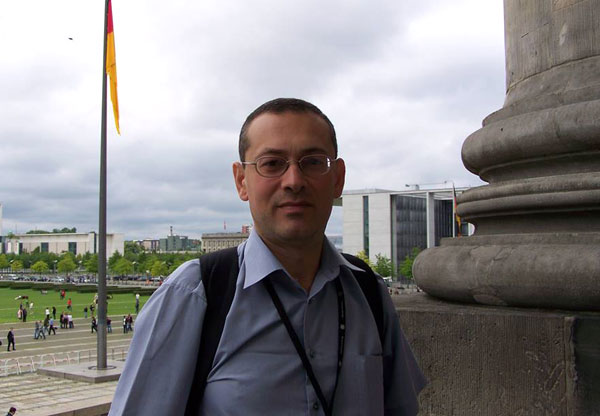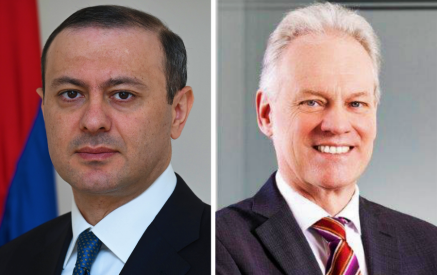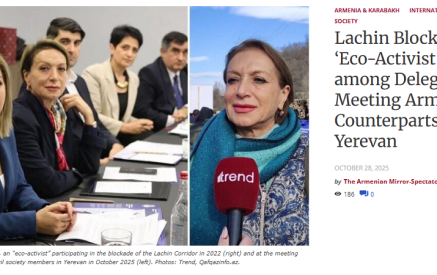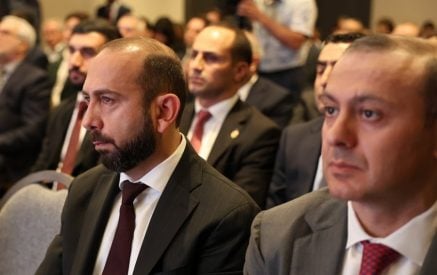According to Armen Grigoryan, it is necessary to have an ability to impose the agenda to politicians or to change the leaders
– Can Yulia Tymoshenko’s release, her return to active politics, her first speech at Maidan be considered a beginning of political rearrangements? Can Maidan’s struggle continue and turn into a struggle for power?
– A significant part of Maidan participants, and, the civil society in general, especially the young and middle-aged people, support a political generation change and have serious reservations towards former officials, in particular, Yulia Tymoshenko, as well as the leaders of the parliamentary parties. Maidan is ready to stay until a new parliament is formed, and it may be assumed that the demand for a generation change will be formulated more precisely. After all, one of the reasons for the uprising and bloodshed was that freedom obtained in 1991 had not been properly valued and had disappeared. Now, the new generation has been forced to pay for the mistakes made in the past, and it does not want to repeat the same mistakes, particularly, by enabling members of the old nomenclature who have changed colour and people who are used to shady deals and to pursue group interests, people who have participated in oligarchic schemes, to resume their power.
– What political development is expected to Ukraine? Can Russian plans for Ukraine be considered over, or Russia will not give up on its goals? In particular, there are much talks about possible split of Ukraine. Do you see grounds for it?
Read also
– If the attempts of people willing to use the victory of the revolution for their narrow group interests and the attempts of some provocateurs fail, Ukraine will have a very good prospect despite the difficulties associated with rapid implementation of large-scale reforms. Citizens who are capable of self-organization and mutual support can also establish an order and cooperate for common goals.
Russia is still trying to maintain tension, particularly in Kharkov and Crimea. However, Maidan’s blow to Vladimir Putin’s imperialistic plans has been extremely powerful, and if the Russian leadership still keeps just a little sober it must try to find ways of cooperation by accepting Ukraine as an equal partner rather than a “brotherly republic”. Otherwise Russia will have greater losses in a long-term perspective, even if now it may temporarily be able to control some parts of Ukrainian territory relying on some criminal elements. A few days later, it will become clear how the Russian leadership will decide to behave. However, I rule out the prospect of splitting of Ukraine.
– What conclusions can be made on the background of recent developments in Ukraine? Do you see some parallels?
– First about the parallels. Paying attention to the absence of robbery in Maidan stores, the decline of crime rate during three months of struggle, already mentioned self-organization and mutual support in food, medical care and other needs, it can be noticed that similar manifestations of national consciousness occurred in Armenia: first in 1988-91, when during the Movement, leaders emerged from the people and it was also possible to form self-defence units that protected the borders of Armenia and Artsakh until the formation of the regular army. Later, another exemplary display of public mobilization took place in 2008.
Similarity of what happened in Yerevan on March 1, 2008, and last week in Kyiv is also obvious. In both cases the authorities armed criminal gangs and used them against the people in addition to the interior troops and special units, and many of the demonstrators were killed by sniper fire. Just before March 1, Robert Kocharyan had visited Moscow, where probably the decision had been made, and the attempt to suppress Maidan by force was also agreed with the Kremlin.
In conclusion: Viktor Yanukovych could stay in office until 2015 and then be remembered as the president who had signed the EU Association Agreement, as well as to preserve his property. However, he preferred Russian support to keep his power by manipulation of 2015 elections and force. Later on, he made wrong decisions one after another, thereby making his our condition worse and worse. He allowed use of force against a small group of demonstrators, provoking anger of dozens of thousands and bringing them to Maidan. Even then, the main claim still was not his resignation but punishment of those guilty for the beatings and, essentially, he was still maintaining the possibility to stay until 2015. Then, on January 16, he adopted a package of laws establishing a hard dictatorship, and clashes between the demonstrators and the police followed, then a few days later an order to use firearms was released, resulting in death of four demonstrators, and the only possible way out became the removal of the regime, particularly because along with the expansion of the conflict the influence of more radical forces grew, excluding the possibility of retreat for the opposition.
This was also a good lesson for the outside actors. On the one side, the West could much earlier, but the latest after the first few victims, impose sanctions and thus make ad-hoc elections more likely, and later would have an opportunity to deal with predictable figures of the parliamentary opposition. Instead, the West procrastinated for so long that after a few weeks of relative calmness the most severe consequences happened, and again, even after the death of dozens of people on February 18, the leaders of some European countries stated that there was still no need for sanctions. Two more days later, they were trying to convince the opposition that Yanukovych could at least rule until December, and convinced the parliamentary opposition leaders to sign a protocol with that condition, and discrediting them as a result. In his turn, Yanukovych relied on manageability of the parliamentary opposition and now has to hide.
On the other hand, Russia with its blatant interference and instilling hostility also missed the opportunity to negotiate with Vitaly Klitschko or other rather predictable figure, and to get arrangements relatively easily. Hopefully, Russian leaders may at least now make conclusions and stop the attempts to satisfy their morbid imperialistic ambitions, otherwise, in case of stretching a helping hand to the separatists Russia will step on the path of self-destruction, with irreversible consequences.
Given all that, however, it is hard to assume that Serge Sargsyan still maintains an ability to draw conclusions and will voluntarily leave. On the other hand, copying Maidan’s experience directly is not possible for the Armenian opposition, particularly because there are no Russian troops in Ukraine (excluding the Black Sea fleet), whereas Armenia is de facto occupied. Serzh Sargsyan’s and the Republican Party’s treachery led to a situation when Russian troops can be officially involved in suppression of “mass disorders”, which may result in great bloodshed. Therefore, other methods of struggle are more preferable, such as students’ strikes, workers’ strikes, and so on, rather than attempting to occupy the administrative buildings. However, it is important to understand that unless there were people ready to self-defence in Kyiv, whom Russian propaganda hates so much, violence and bloodshed would have happened anyway, urged by Putin himself, so the tragedy of March 1 would just have repeated.
Finally, Maidan’s most important lesson, perhaps, is the ability to formulate a new political agenda and to impose it on the politicians, or to change the leaders, if necessary. Given the most pressing issues, our agenda now must include getting rid not only of Serzh Sargsyan but the Karabakh clan and the oligarchic system, in general, as well as revising the framework of relations with Russia and restoration of state sovereignty.
Emma GABRIELYAN























































